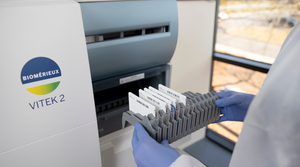Is FDA Failing on OB-GYN Device Approvals?
May 25, 2016
A new study recommends "more rigorous regulatory standards for the approval and postapproval tracking requirements for high-risk devices."
Nancy Crotti
FDA has approved devices for obstetrics and gynecology without sufficient data, according to a study by Northwestern University.
Of the 18 high-risk OB-GYN devices approved from January 2000 to December 2015, 42% passed muster on the basis of nonrandomized controlled trials, according to research published in Obstetrics & Gynecology. Medical residents from Northwestern University conducted the study. The approved devices included highly controversial pelvic meshes, laparoscopic morcellators, and the Essure birth control device.
FDA spokeswoman Deborah Kotz declined to discuss the study: "As a general policy, we do not comment on individual studies but consider them as part of the medical literature in terms of how FDA evaluates the safety profile of medical devices."
Approved in 2002, Essure has been linked to five patient deaths, as well as to metal toxicity, potentially-lifelong autoimmune problems, unintended pregnancy, headaches, and fatigue. The agency gave the device a PMA "with insufficient long-term evidence and postmarket surveillance requirements," the university statement says. Essure was developed by Conceptus and is now marketed by Bayer.
Transvaginal mesh devices used to treat pelvic organ prolapse have been the subject of numerous lawsuits. In January 2016, FDA ordered manufacturersof pelvic mesh devices still on the market to submit PMAs, which require data from a pivotal study.
Most of the devices were approved for endometrial ablation, (33%), contraception (28%), and fetal monitoring (17%). The median approval time was 290 days (range 178-1,399 days), the study noted.
FDA approved four of the deviceseven though they failed to demonstrate efficacy in clinical trials. Six were not required to undergo post-market studies of ongoing safety. Three devices were eventually withdrawn from the market after approval. Of those three, two were not reviewed by physician experts on the FDA's obstetrics and gynecology advisory committee. The other was reviewed but not recommended for approval by the committee.
"We looked at the class of devices with the highest potential risk to patients--the devices that had to go through the most rigorous pre-market approval process," said senior author Steve Xu, MD, a resident in derrmatology, in a university statement. "Despite this being the most stringent pathway, and despite the fact that we've had multiple safety issues connected to OB-GYN devices affecting millions of women worldwide, the evidence leading to approval has a lot of weaknesses."
The study recommended expanding FDA's OB-GYN advisory panel. The authors also suggested that all clinicians learn how FDA regulation works and take a more active role collecting and reporting data about the complications and unintended outcomes that result from devices.
They're also concerned about the possibility that Congress will allow FDA to approve devices with less stringent controls. The 21st Century Cures Act, passed by the U.S. House of Representatives in 2015 and now under consideration by the Senate, would reduce medical device regulation.
"There are provisions that would broaden the definition of the 'valid scientific evidence' manufacturers need in order to prove medical benefit. Our concern is that this would lead to more devices getting approved with even less clinical evidence that they are both safe and effective," said study first author Jessica Walter, MD, an OB-GYN resident, in the statement.
Learn more about cutting-edge medical devices at MD&M East, June 14-15, 2016 in New York City. |
Nancy Crotti is a contributor to Qmed.
Like what you're reading? Subscribe to our daily e-newsletter.
About the Author(s)
You May Also Like

